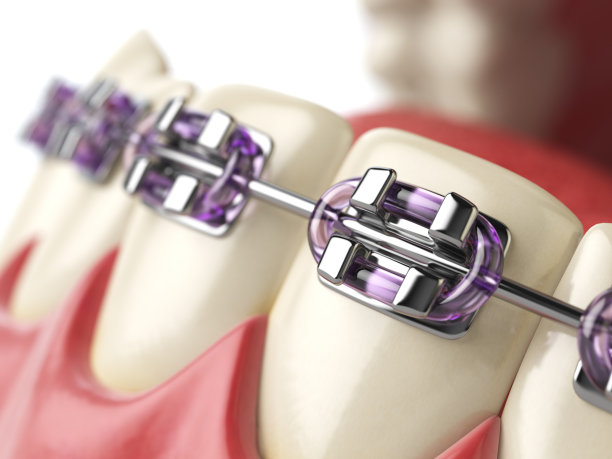Summary: Dental implants have revolutionized restorative dentistry, offering patients a long-term solution for missing teeth. This article provides a comprehensive guide to understanding the benefits, risks, and care associated with dental implants, highlighting their impact on oral health. We will explore their advantages, potential complications, aftercare routines, and considerations before opting for this solution. By the end of this guide, readers will be more informed about making the best decisions for their dental health and overall wellbeing.
1. Benefits of Dental Implants

Dental implants represent one of the most effective solutions for tooth replacement. One of the primary advantages is that they mimic natural teeth, restoring functionality and aesthetics. Patients can eat, speak, and smile with confidence, as these implants are designed to blend seamlessly with existing teeth.
Another significant benefit is their durability. Unlike dentures, which may require frequent replacement, dental implants can last a lifetime with proper care. This longevity makes them a cost-effective solution over time, as they often do not incur additional expenses related to maintenance or replacement.
Moreover, dental implants support the jawbone, preventing further bone loss that typically accompanies tooth loss. This preservation of bone structure is crucial for maintaining facial contours and preventing the sunken appearance that can arise when teeth are missing.
2. Risks Associated with Dental Implants
While dental implants are generally safe, its essential to recognize the associated risks. One primary concern is the possibility of infection at the implant site. As with any surgical procedure, there is a risk of complications, particularly if post-operative care instructions are not diligently followed.
Another risk involves implant failure, which may occur due to various factors such as insufficient bone density or improper positioning during surgery. Patients with pre-existing conditions, such as uncontrolled diabetes or gum disease, may be at a higher risk for complications.
Furthermore, nerve damage is a potential concern, leading to sensations such as pain or numbness in the jaw, gums, or surrounding areas. This complication reiterates the importance of choosing an experienced dental professional for the implantation procedure.
3. Aftercare for Dental Implants
Proper aftercare is critical for ensuring the success and longevity of dental implants. Post-operative care typically involves following specific instructions provided by the dentist, which may include maintaining good oral hygiene practices. Gentle brushing and flossing around the implant site are essential to prevent infection and promote healing.
Additionally, patients are advised to attend regular check-ups and cleanings with their dentist. These appointments allow for monitoring the health of the implants and surrounding tissues, ensuring any early signs of complications can be addressed promptly.
Diet plays a crucial role in implant aftercare. During the initial healing period, it is essential to consume soft foods to minimize stress on the implant. Gradually incorporating more solid foods can help maintain comfort while ensuring the implant integrates effectively with the jawbone.
4. Important Considerations Before Getting Implants
Before opting for dental implants, several vital considerations must be addressed. The first is to evaluate the patient’s overall health and dental condition. The dentist will conduct a thorough examination, including imaging studies, to determine if the patient is a suitable candidate for implants.
Financial considerations also play a significant role. Dental implants can be a considerable investment, and patients should discuss financing options and potential insurance coverage with their dental provider.
Lastly, patient expectations should be realistic. While dental implants can significantly improve quality of life, individual results can vary based on several factors, including healing time and adherence to aftercare recommendations. Having open discussions with a dental professional can provide clarity on what to expect throughout the process.
Summary:
In conclusion, dental implants are a valuable tool for restoring oral health and enhancing quality of life. They offer numerous benefits, along with certain risks that should not be overlooked. By following proper aftercare and making well-informed decisions, patients can enjoy the long-term rewards of their investment in dental health.
This article is compiled by Vickong Dental and the content is for reference only.
Vickong Dental
Vickong Dental is a large medical group established in Hong Kong in 2008 by professors from well-known medical universities in Guangdong and Hong Kong, as well as medical doctors from key national '985' universities (including Master's supervisors and senior professors). The chain of branches brings together expert dentists with PhDs and Master's degrees from Hong Kong and Mainland China, committed to providing high-quality dental treatment.
"Vickong Dental Practices the University Motto of 'Healing and Serving Society,' with a Stable Operation for Sixteen Years. It Has Been honored with Hong Kong Enterprise Leaders's Choice,' and is a Global Trusted Implant Center for the Nobel Implant System. Recommended by Hong Kong Metro Broadcast and Guangdong Television, it Serves Customers from Over Thirty Countries and Regions, Gaining the Trust and Favor of Citizens from the Guangdong-Hong Kong-Macau Greater Bay Area and Surrounding Cities.

Thousands of customers' unanimous praise
The most recognized and highly recommended dental service by customers in the Guangdong-Hong Kong-Macau Greater Bay Area
We Ensure You Receive Detailed Care and Attention Here
Hong Kong standards, Shenzhen prices, Your Trusted English-speaking dentists

Vickong Dental Medical-Grade Instrument Disinfection Process
Vickong Dental Medical-Grade Instrument Disinfection Process

Vickong Dental Chain: A Warm and Comfortable Environment for Treatment






Appointment Hours

Q&A
Why choose Vickong Dental?
Vickong Dental practices the university motto 「Medicine to Benefit Society」, with each branch bringing together highly qualified dentists with doctoral and master’s degrees from Hong Kong and the Mainland, and has maintained seventeen years of steady operation。Recipient of 「2024 Hong Kong Enterprise Leaders Brand」, 「2025 Hong Kong Enterprise Leaders Brand」, a Nobel Biocare Global Trusted Implant Center, and a brand recommended by Metro Radio Hong Kong and Guangdong TV。
To date, we have served customers from more than thirty countries and regions,earning exceptionally high word-of-mouth recognition and trusted recommendations from residents across the Guangdong-Hong Kong-Macao Greater Bay Area and surrounding cities
We have eight major branches in Zhuhai、Shenzhen,and a consultation and service assurance center in Hong Kong,so you can book a free consultation at any time for any questions,which is very reassuring.
If I do not accept the quotation after the CT scan, will I be charged??
No! As long as the actual treatment has not started, you will not be charged any fees.
Will there be any additional charges during the treatment process?
No, there won’t be any additional charges. Before treatment begins, we will clearly explain the treatment plan and its corresponding fees. Only after the patient agrees and signs the consent form will we proceed with the dental service.
Can I pay in Hong Kong dollars?
Yes. Vickong Dental accepts payment in Hong Kong dollars. The amount will be converted based on the exchange rate of the day, and the applicable rate will be clearly communicated to you in advance.
Can I reschedule my appointment at any time?
Yes. Please contact us via **WeChat** or **WhatsApp** as early as possible, providing your original appointment time and details, along with your preferred new date and time slot for rescheduling.













